Rangers: Mike Ashley loan highlights financial uncertainty
- Published
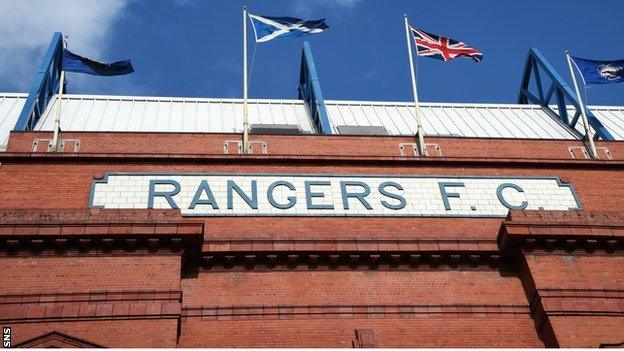
Rangers' Ibrox Stadium
Rangers are still surrounded by questions. Mostly, they centre on what Mike Ashley intends to do with the club, since he is effectively the controlling figure at Ibrox.
David Somers is the executive chairman of Rangers International Football Club plc and has been a visible presence at Ibrox following the departures of the chief executive Graham Wallace and the finance director Philip Nash.
However, Derek Llambias is prominent in the offices inside the stadium, with the former Newcastle United managing director and long-time Ashley confidante having been appointed as a consultant and non-executive director.
The power base is significant, because decisions are being made that will affect Rangers in the long-term. Ashley has made another £1m available in addition to the £2m he provided last month (and which must be paid back by April). The further £1m can be drawn down on 26 November, just before that month's wage run, and the announcement to the Stock Exchange made clear that "further working capital in addition to the facility will be needed before the end of the year".
So why has Ashley only extended the credit facility - essentially a loan - to cover November but not December?
Finances at Ibrox | |
|---|---|
Accounts posted in October 2013 demonstrated £34m in annual operating costs (which included: staff costs of £17m, operating costs of £11m, first team player costs of £7.8m and police, stewarding etc). | The club posted losses of £14m in the period on a turnover of £19.1m (most of which came from gate receipts and hospitality income). |
This figure indicates a monthly operating cost (for the 13-month period to 13 June 2013) of £2.6m per month. | At the end of June 2013, Rangers had £11m in cash and no bank debt. That was after raising more than £35m in finance, including a share offer. |
Rangers need significant further investment to make it to the end of the season, let alone properly rebuild the club's football infrastructure as the team tries to gain promotion back to the top-flight.
The annual general meeting is required to be held before 31 December, but the accounts need to be published in the meantime. Without a confirmed funding plan, the accounts will either carry an emphasis of matter statement - relaying uncertainty about funding - or they will be qualified.
This would not unduly affect the share price since the fragile state of Rangers' finances are already in the public domain.
Llambias has been assessing the financial and staffing situation at Ibrox, and reports suggest that job losses may affect non-playing staff. There is not enough slack left in the business to rebalance it by making redundancies and further cut-backs, though.
Rangers need to be subsidised until the commercial, sponsorship, hospitality and other established revenue streams operate at full capacity again, when the club is back in the top-flight and challenging for a place in European competition, and when supporters have returned en masse rather than around 15,000 having chosen not to renew their season tickets, as they did last summer.
The announcement to the Stock Exchange about the credit facility also contained a justification of the board's decision to accept Ashley's loan offer when there were other funding proposals available.
Dave King had offered, in conjunction with a group of investors, £16m in return for equity and control of the board, while Brian Kennedy had latterly offered a £3m loan, in return for one place on the board.
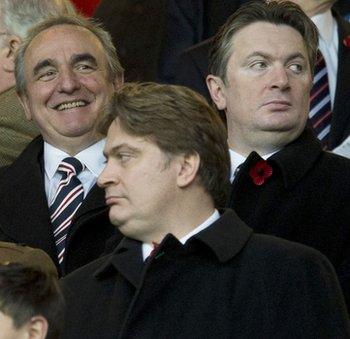
Derek Llambias, a long-time associate of Mike Ashley, with Rangers shareholders James and Sandy Easdale
Ashley, who owns 8.92%, offered £2m, in return for two board seats, which was accepted after James Easdale and Norman Crichton voted in favour.
Easdale represents his brother, Sandy - who owns 5.2%, and the holds the proxy votes of a further 20.94% - while Crichton represents Laxey Partners, who own 16.32%. They represent 51% of shareholders, while the independent director is Somers, who was appointed as non-executive director 12 months ago, at a time when James Easdale and Brian Stockbridge were the only RIFC directors.
In a letter to the Alternative Investment Market, the Rangers Supporters Trust - which holds a little under 1% of the shares - called for an investigation to "determine if [the board's] actions favour one related party" and suggested that the interests of other shareholders are being "overlooked".
Ashley's Sports Direct firm has given up its naming rights to Ibrox, which it acquired for £1 from previous Rangers chief executive Charles Green. There is no detail on the extent or scope of the "partnership marketing agreement" that has been agreed with Sports Direct or the "certain advertising rights" that Sports Direct hold.
In effect, the worth of whatever agreements have been struck with Ashley remain unknown.
Uncertainty abounds. How will Rangers be funded? How will other shareholders react? What will the balance of power be going into the new year? What is the long-term strategy for the rebuilding of the club? How will fans be attracted back to the club?
And what is the full extent of the commercial partnership between Sports Direct and Rangers, which is encompassed in the joint venture Rangers Retail Ltd? Rangers hold 51% of the shares in Rangers Retail, although different classes of shares mean that Sports Direct hold sway over financial matters.
Ashley may only want to secure control of Rangers' commercial operation, rather than own the club outright (he is limited to 10% having previously agreed an undertaking with the Scottish Football Association) or fund it. For now, Rangers fans can only ask questions and wait for the answers to become clear.
- Published12 November 2014
.jpg)
- Published11 November 2014
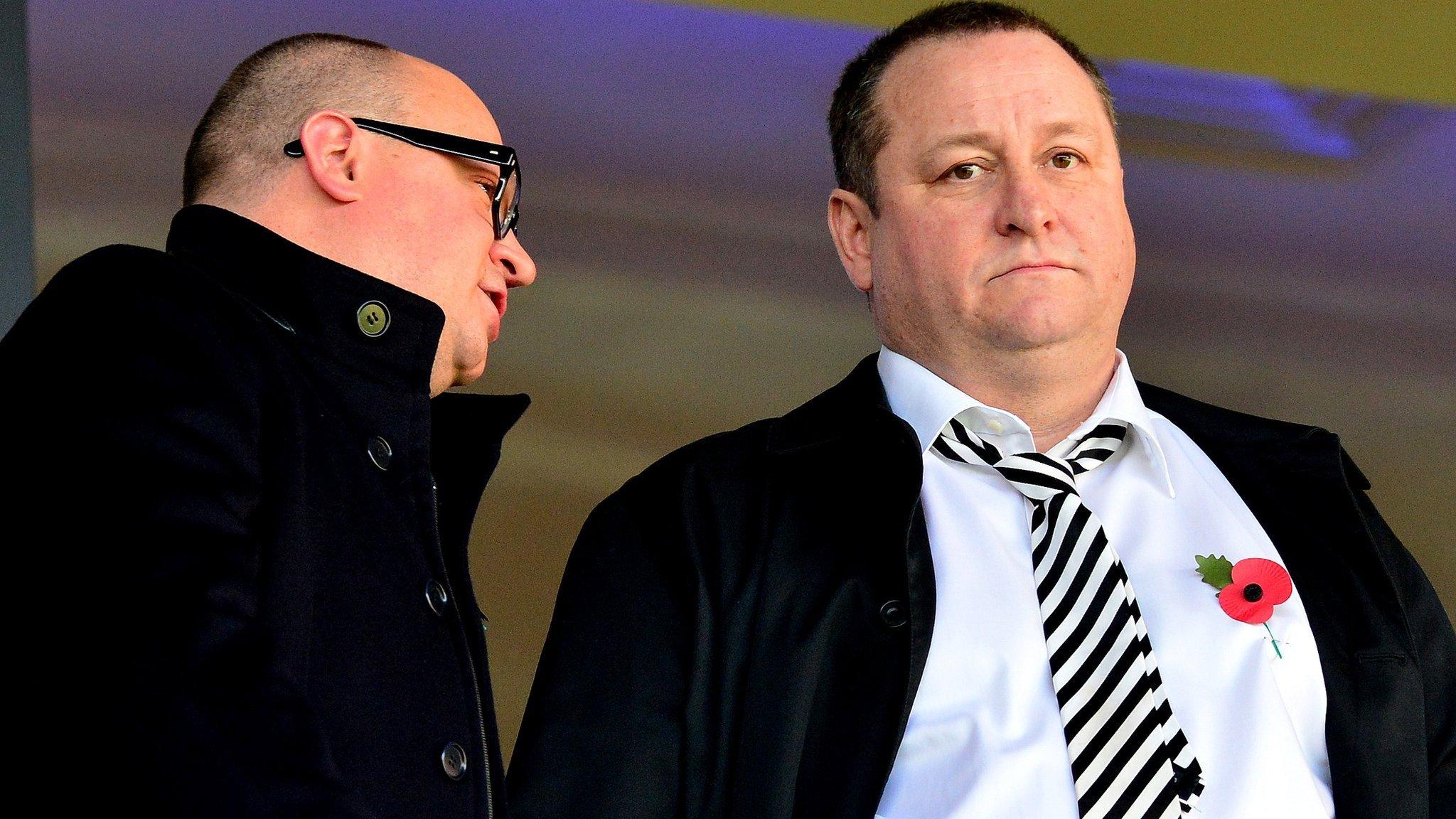
- Published28 October 2014
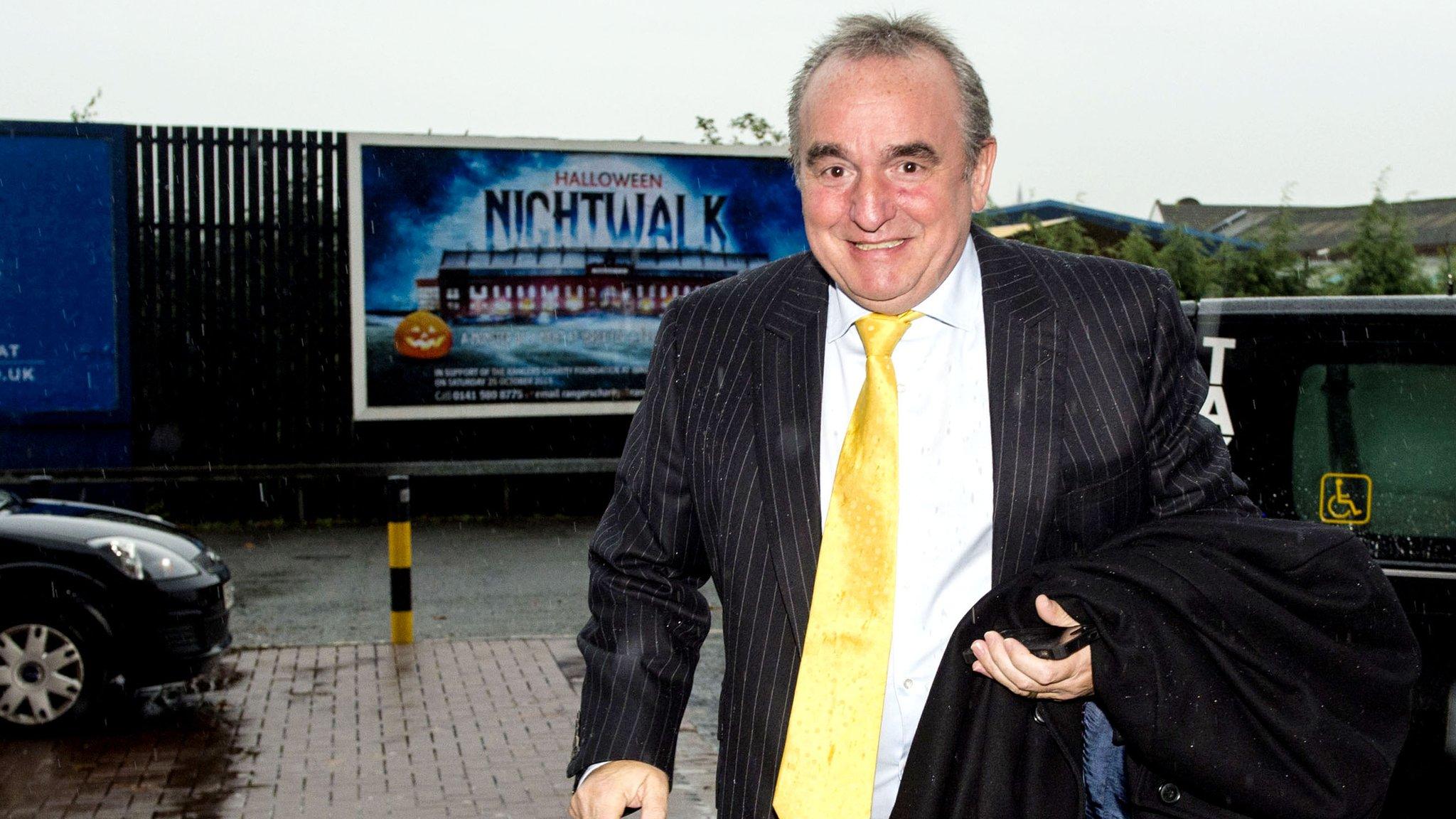
- Published28 October 2014
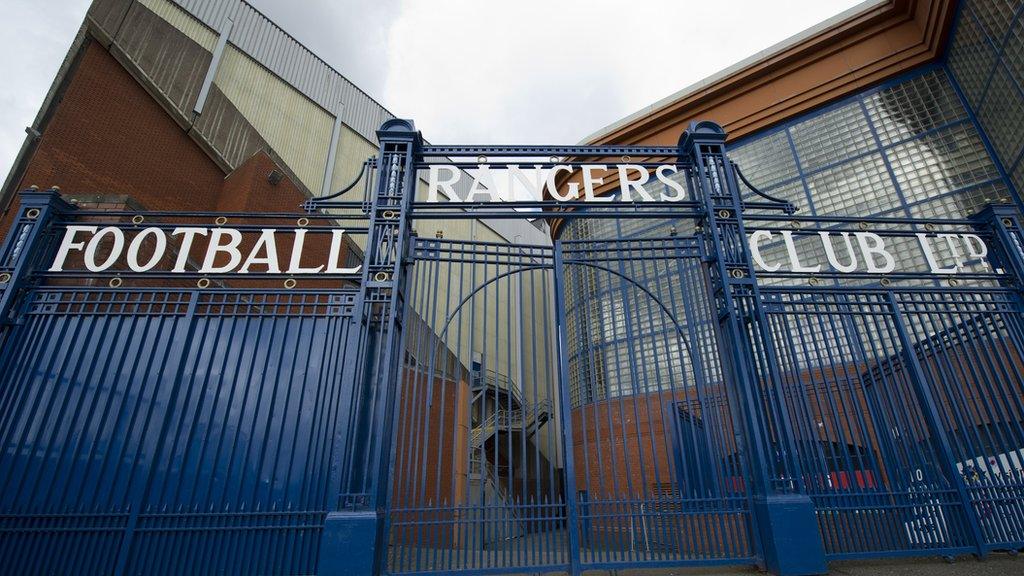
- Published27 October 2014
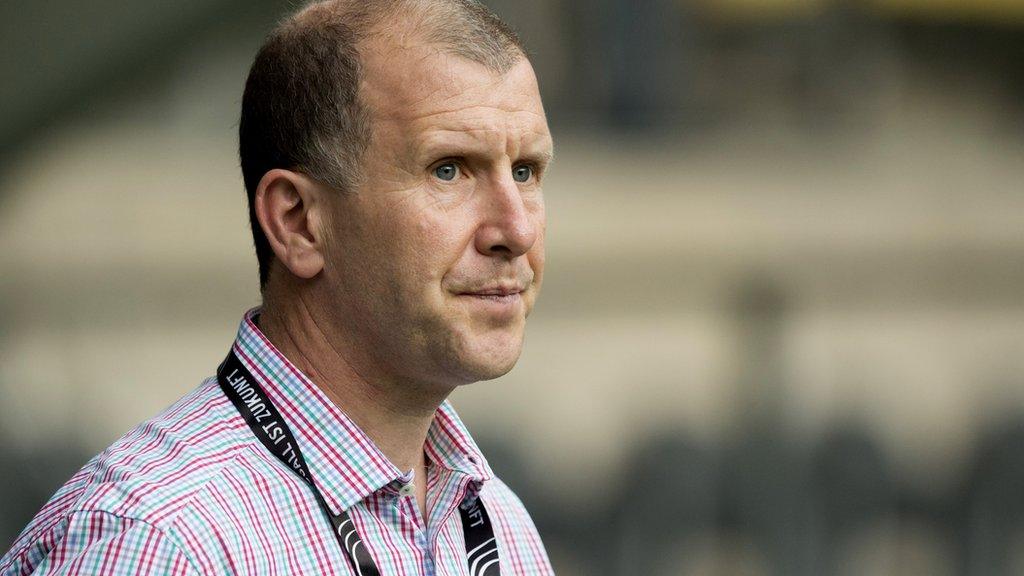
- Published20 June 2016

- Published7 June 2019
